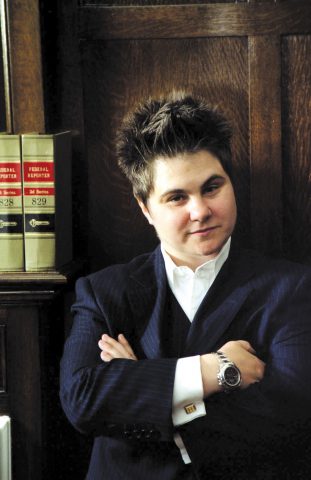Dear Yetta:
I would like to know about trademarking. I have written a few songs of my own and am thinking about putting a band together. I want to trademark my work and I was wondering if you could point me in the right direction. How would I do that?
-Rock n’ Roll Brooklyn
Dear Rock:
First, congratulations and good luck on your endeavors. In terms of protecting your “work,” I think you are confused with the difference between a copyright and a trademark.
A trademark is a distinctive design, picture, logo or wording (or combination) that you put on goods for sale to identify you as the source of the products or goods. So for example, when and if you were to have a logo or wording that you planned to put on t-shirts you sold at your concerts, assuming there was a distinctive aspect to them that wasn’t generic, you would be able to register this trademark with the U.S. Patent Office to prove your use and ownership and to be able to sue someone for infringement under unfair competition and/or to stop use of such trademark.
However, in terms of protecting your unique and original songs, you would probably seek a copyright. A copyright is, generally speaking, an exclusive right of an author of a literary or artistic property, which would include your songs, assuming they were in written or
recorded form.
Also, it is interesting to note that you already had federal copyright protection to your songs the minute you created them in tangible form (such as writing or taping). You should put a notice on them that says copyright, copy or ©, with your name and the date of copyright (which is the year of first publication). The notice should be on the title page or the page immediately following.
Finally, you should also register with the U.S. Copyright Office by submitting a registration form and two copies of the work with a fee. This further establishes proof of earliest creation and publication and is required to file a lawsuit for infringement of copyright. And, if filed within three months of publication, establishes a right to attorneys’ fees in an infringement suit.
I hope this helps, and next time let’s talk about pirating and other concerns you are going to have once you become a superstar. n
Email questions to kurland@helloworld.edu or call 212-253-6911
*This column is not a consultation with an attorney and should in no way be construed as such or as a substitute for such consultation. Anyone with legal issues or concerns should seek the advice of her own attorney.


What Do You Think?